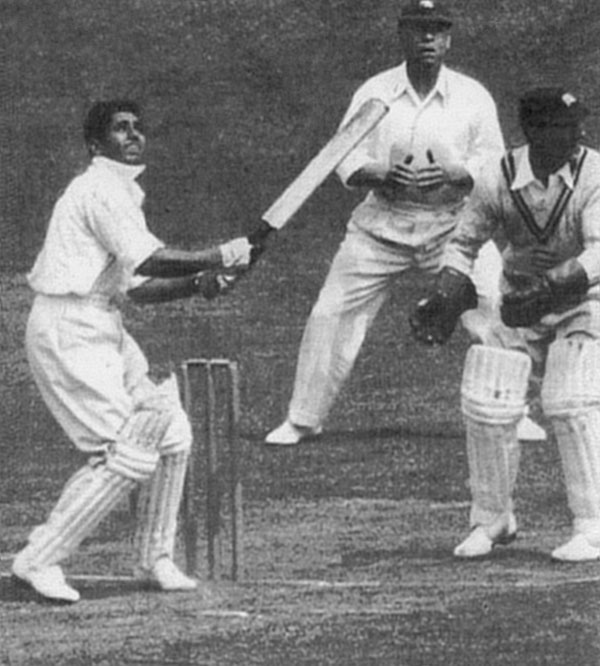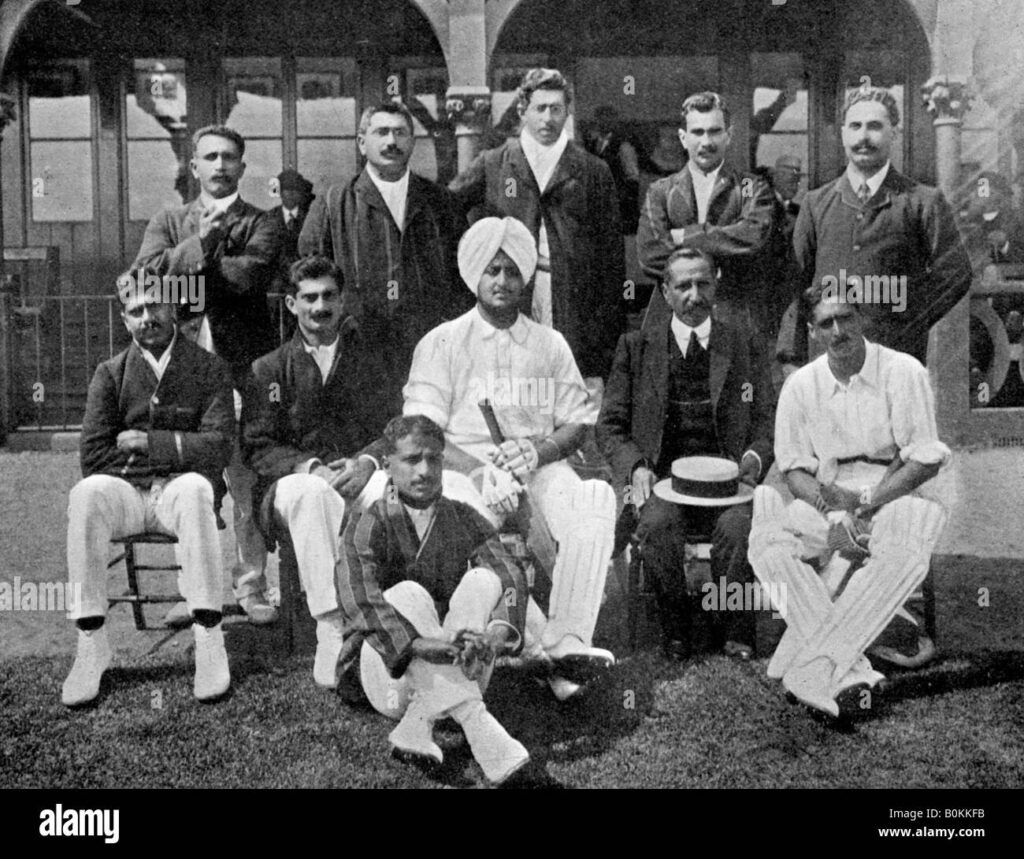CRICKET
India National Cricket Team
The India men’s national cricket team represents India in men’s international cricket. It is governed by the Board of Control for Cricket in India (BCCI), and is a Full Member of the International Cricket Council (ICC) with Test, One Day International (ODI) and Twenty20 International (T20I) status. India are the current Twenty20 World Champions.
The team has played 579 Test matches, winning 178, losing 178, 222 draw and 1 tie. As of August 2024, India is ranked second in the ICC Test Championship on 120 rating points. India has played the finals of the ICC World Test Championship in the first two editions (2021 and 2023).
Test rivalries include the Border-Gavaskar Trophy (with Australia), Freedom Trophy (with South Africa), Anthony de Mello Trophy and Pataudi Trophy (with England).
The team has played 1,058 ODI matches, winning 559, losing 445, tying 10 and with 44 ending in a no-result. As of August 2024, India is ranked first in the ICC ODI Championship on 118 rating points. India have appeared in the World Cup final four times 1983, 2003, 2011, 2023 and won twice in 1983 and 2011. It was the second team (after the West Indies) to win the World Cup, and the first to win the competition on home soil after winning it in 2011. India have also won two ICC Champions trophies (2002 and 2013). In addition, they have also won the ODI Asia Cup 7 times in 1984, 1988, 1990–91, 1995, 2010, 2018, 2023.
The team has played 235 Twenty20 International matches, winning 154, losing 69, tying 6 and with 6 ending in a no-result. As of August 2024, India is ranked first in the ICC T20I Championship on 267 rating points. India have won the ICC Men’s T20 World Cup twice in 2007 and 2024. They have also won the Twenty20 Asia Cup in 2016 and Asian Games in 2022.
India are the reigning T20 World Cup Champions, winning the championship in 2024 against South Africa.
HISTORY OF INDIA NATIONAL CRICKET TEAM

Lala Amarnath Bhardwaj (11 September 1911 –5 August 2000) was an Indian cricketer. He is considered to be the father figure of Indian cricket. He scored the first ever century for India in Test Cricket in 1933. He was independent India’s first cricket captain and captained India in their first Test series win against Pakistan in 1952.
He played only three Test Matches before World War II (India played no official Test matches during the war). During this time he amassed around 10,000 runs with 30 hundreds in first-class cricket which included teams from Australia and England. After the war, he played another 21 Test Matches for India. He later became the chairman of the Senior Selection Committee, BCCI and was also a commentator and expert. His proteges include Chandu Borde, M.L. Jaisimha, and Jasu Patel who played for India. His sons Surinder and Mohinder Amarnath also became Test players for India. His grandson Digvijay is also a current first-class player. The Government of India awarded him the civilian honour of the Padma Bhushan in 1991. Amarnath received the inaugural C. K. Nayudu Lifetime Achievement Award in 1994, the highest honour bestowed by BCCI on a former player.
Early history (1700s–1918)
See also: History of cricket in India to 1918
The British brought cricket to India in the early 1700s, with the first cricket match played in 1721. It was played and adopted by Kolis of Gujarat because they were sea pirates and outlaws who always loot the British ships so East India Company tried to manage the Kolis in cricket and been successful. In 1848, the Parsi community in Mumbai formed the Oriental Cricket Club, the first cricket club to be established by Indians. After slow beginnings, the Europeans eventually invited the Parsis to play a match in 1877. By 1912, the Parsis, Hindus, Sikhs and Muslims of Bombay played a quadrangular tournament with the Europeans every year. In the early 1900s, some Indians went on to play for the England cricket team. Some of these, such as Ranjitsinhji and Duleepsinhji were greatly appreciated by the British and their names went on to be used for the Ranji Trophy and Duleep Trophy – two major first-class tournaments in India. In 1911, an Indian men’s cricket team, captained by Bhupinder Singh of Patiala, went on their first official tour of the British Isles, but only played English county teams and not the England cricket team

TEST MATCH STATUS (1918 – 1970)
India was invited to the International Cricket Council in 1926, and made their debut as a Test playing nation in England in 1932, led by CK Nayudu, who was considered the best Indian batsman at the time. The one-off Test match between the two sides was played at Lord’s in London. The team was not strong in their batting at this point and went on to lose by 158 runs. India hosted its first men’s Test cricket series in 1933. England was the visiting team that played two Tests in Bombay (now Mumbai) and Calcutta (now Kolkata). The visitors won the series 2–0. The Indian team continued to improve throughout the 1930s and 1940s but did not achieve an international victory during this period. In the early 1940s, India did not play any men’s Test cricket due to World War II. The team’s first series as an independent country was in late 1947 against Don Bradman’s Australian cricket team in England in 1948 (a name given to the Australia national cricket team of that time). It was also the first Test series India played which was not against England. Australia men’s cricket team won the five-match series 4–0, with Bradman tormenting the Indian bowling in his final Australian summer. India subsequently played their first Test series at home not against England, but against the West Indies in 1948. West Indies won the five Test series 1–0. India recorded their first Test victory, in their 24th match, against England at Madras in 1952. Later in the same year, they won their first Test series, which was against Pakistan. They continued their improvement throughout the early 1950s with a series win against New Zealand in 1956. However, they did not win again in the remainder of the decade and lost badly to strong Australian and English sides. On 24 August 1959, India lost by an innings in the Test to complete the only 5–0 whitewash ever inflicted by England. The next decade saw India’s reputation develop as a team with a strong record at home. They won their first Test series against England at home in 1961–62 and also won a home series against New Zealand. They managed to draw home series against Pakistan and Australia and another series against England. In this same period, India also won its first series outside the subcontinent, against New Zealand in 1967–68
21st CENTURY
The team was further damaged in 2000 when former captain Azharuddin and fellow batsman Ajay Jadeja were implicated in a match-fixing scandal and given life and five-year bans respectively. This period was described by the BBC as “the Indian cricket’s worst hour”. However, the new core – Tendulkar, Dravid, Kumble and Ganguly – swore not to let this happen to them again, and led Indian cricket out of the dark times. The first three put aside personal ambitions to let Ganguly lead them into a new era.
The Indian team underwent major improvements under the captaincy of Ganguly and the guidance of John Wright, India’s first foreign coach. In the Kolkata Test match, India became only the third team in the history of Test cricket to win a Test match after following on. Australian captain Steve Waugh labelled India as the “Final Frontier” because of his side’s inability to win a Test series in India. In 2002, India were joint-winners of the ICC Champions Trophy with Sri Lanka and then went to the 2003 Cricket World Cup in South Africa, where they reached the final, only to be beaten by Australia. A convincing ODI series win in Pakistan in early 2006, following a loss in the Test series, gave India the world record of 17 successive ODI victories while batting second.
In September 2007, India won the first-ever ICC Men’s T20 World Cup held in South Africa, beating Pakistan by five runs in the final. On 2 April 2011, India won the 2011 Cricket World Cup by defeating Sri Lanka in the final, thus becoming the third team after West Indies and Australia to win the World Cup twice. India also became the first team to win the World Cup on home soil. India defeated England in the 2013 ICC Champions Trophy final and captain M. S. Dhoni became the first men’s cricket team captain in history to win the three major ICC trophies, namely the Cricket World Cup, ICC Men’s T20 World Cup and ICC Champions Trophy

Indian players celebrating after taking a wicket against New Zealand in 2010
In the 2014 ICC Men’s World Twenty20 hosted in Bangladesh, India narrowly missed out on another ICC trophy by losing to Sri Lanka in the final. India was knocked out of the 2015 Cricket World Cup in the semi-final to eventual winners Australia. India then began 2016 by winning the 2016 Asia Cup, remaining unbeaten throughout the tournament. The team were favourites to win the 2016 ICC World Twenty20, which was being held at home, but lost in the semi-final to eventual champions West Indies. India defeated Pakistan in their first game of the 2017 ICC Champions Trophy but lost to the same opponents in the final, the first time they had met at this stage of a tournament since 2007
The Indian team’s next major global tournament was the 2019 Cricket World Cup where the team finished first in the group stage with seven wins and only one loss which came against host nation England. They made the semis but lost to New Zealand by 18 runs. Rohit Sharma was the highest run-scorer for the team with 648 runs. India played the 2021 ICC World Test Championship Final against New Zealand in Southampton in which they lost by eight wickets. India qualified for the semi-finals in the 2022 T20 World Cup, but lost to England by ten wickets.
After a 3–1 series win against Australia on home soil. India played the 2023 ICC World Test Championship final against Australia at The Oval in which they lost by 209 runs. India went on to win the 2023 Asia Cup final against Sri Lanka in R. Premadasa Stadium by ten wickets .Kuldeep Yadav was the player of the tournament with nine wickets. Meanwhile, the Indian men’s cricket team secured a gold medal in 2022 Asian games due to higher seeding after the final against Afghanistan was washed out.
India had an unbeaten campaign in the 2023 Cricket World Cup, starting with a win over Australia with six wickets. They stormed into the final after a strong win against Sri Lanka by 302 runs, and then won their semi-final against New Zealand by 70 runs. The game was marked by Virat Kohli becoming the first to ever achieve 50 ODI Centuries, surpassing the previous record set by Sachin Tendulkar. As well, Mohammed Shami took the best bowling figues for an Indian in the ODI World Cup, 7/57. However, they were ultimately defeated in the final by Australia by the same margin of wickets they beat them with by wickets, six wickets. Virat Kohli was the highest run scorer of the ODI World Cup with 765 runs, the most ever in a single edition of the World Cup.
India won the 2024 T20 World Cup by defeating South Africa in the final. They became the third team after England and West Indies to win the cup twice and also the first team to win the tournament undefeated. Arshdeep Singh was the joint-highest wicket taker at 17 wickets.
LINKS

